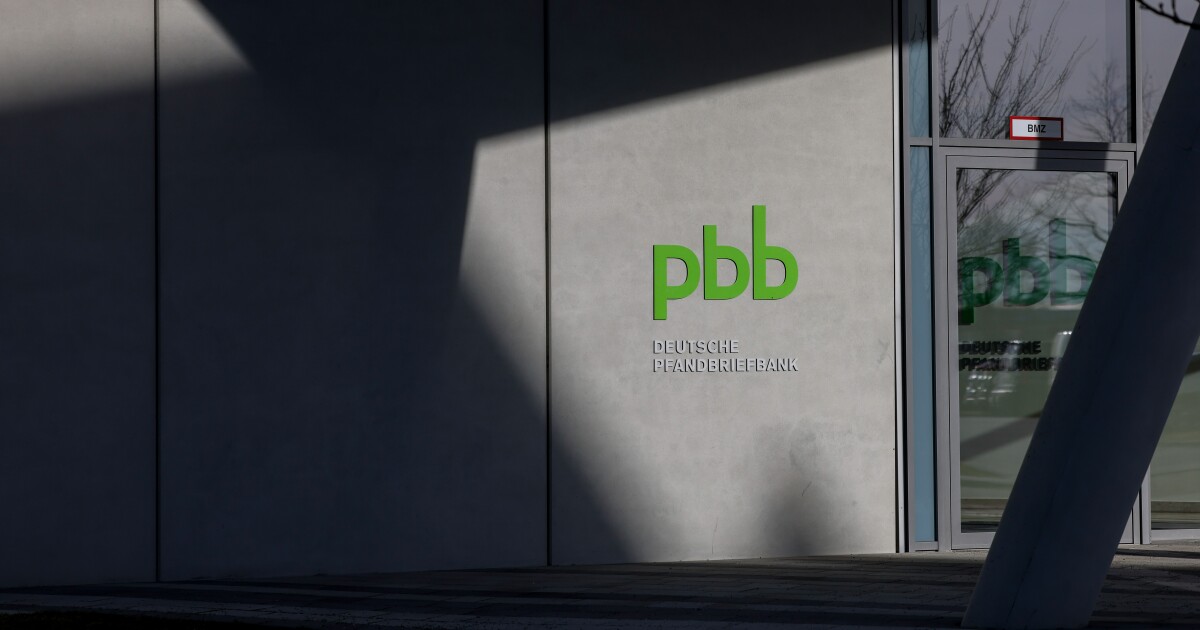
German lender Deutsche Pfandbriefbank AG will cut back on office and US loans after the property crisis forced it to
"The relatively high weighting of the asset class office is to be gradually reduced in the coming years," PBB said in a statement Thursday.
It will target business in areas such as data centers, senior living and hotels. The geographic focus will be on Europe. In the U.S., PBB plans to do some business on the East Coast and to discontinue lending on the West Coast.
PBB, which has a significant exposure to U.S. and office real estate, earlier this year became one of the most prominent examples of European banks hit hard by fears that troubles in US property markets are spreading to Europe. Chief Executive Officer Kay Wolf has sought to revive the firm by
The US accounted for about 12% of PBB's €29 billion ($31.7 billion) performing real estate loans as of June, and for almost half of the lender's soured real estate debt. Offices made up about 50% of the overall portfolio, and PBB intends to bring the share down to below 40%, it said.
Shares of PBB fell 3.5% at 12:22 p.m. in Frankfurt, bringing declines this year to 5.9%.
"The ongoing shifts to home working and online shopping will likely limit new office and retail investments to the most desirable locations," Moody's Ratings said in a report this week. "New CRE investments will favor sectors like data centers and logistics properties."
PBB intends to distribute at least 50% of its profit after tax and AT1 coupons to shareholders until 2027, it also said. Apart from dividends, the lender also plans to conduct share buybacks.
PBB was created in 2009 from the functioning parts left behind by the collapse of Hypo Real Estate, a mortgage lender that became Germany's biggest casualty of the financial crisis. The government sold much of its stake in PBB through a public listing in 2015 and divested completely in 2021.



